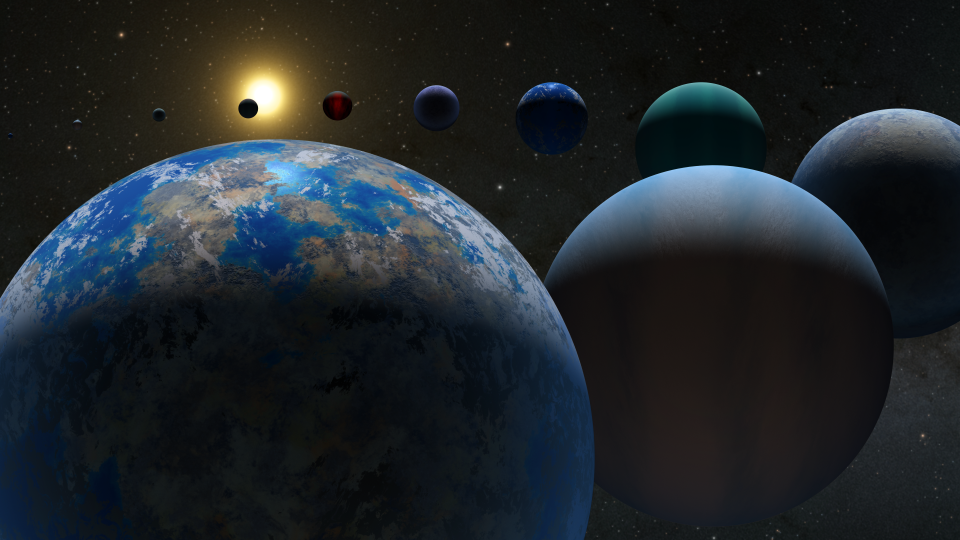Ever wanted to name a planet? Here's how to name one the James Webb Telescope observed
Anyone can name a star online, but the International Astronomical Union is offering a rare space opportunity: to name a planet observed by the groundbreaking James Webb Telescope.
The IAU is responsible for naming everything in space, from constellations, comets and what lies outside our solar system. Though the organization names planets itself, it wants the next set of planets to be named by the public in the NameExoWorlds 2022 contest, a celebration of the 10th anniversary of its Office for Astronomy Outreach. The goal: to invite "communities across the globe to connect their own cultures to these distant worlds."
"It is exciting to have a new NameExoWorlds competition underway to celebrate the 10th anniversary of the Office for Astronomy Outreach. Their work over the past decade has had a global impact, and this competition is yet another way to bring people together through astronomy," IAU President Debra Elmegreen said in a news release.

THE NEWEST PLANET TO THE GALAXY? Astronomers say they may have found it.
SHORTEST DAY IN HISTORY: Earth completes fastest rotation ever on June 29, English lab says
What planets will be named?
Twenty planet names are up for grabs, all of which are exoplanets, meaning they are outside our solar system.
They are of "special interest," the IAU says, because they will be the first exoplanets observed by the James Webb Telescope. They were discovered "through a mix of techniques, mostly via the transit method and direct imaging." The location of these planets can be found here.
Submissions won't name only the planets either; people also will name the star the exoplanet orbits, giving them the honor of naming an "ExoWorld."
It's the third time the IAU has allowed the public to name "ExoWorld. It did so in 2019 and 2015.
JAMES WEBB SPACE TELESCOPE: Telescope will take flight as a US postage stamp in September
What do you need to do to name a planet?
You can't just name the planet or star after your child, spouse or pet.
What the IAU wants are teams of students, teachers, astronomy lovers and astronomers of all levels to come together to decide a name. The proposed names "should be of things, people, or places of long-standing cultural, historical, or geographical significance, worthy of being assigned to a celestial object." The star and planet names should also share a common theme.
Once teams decide on the names, they must create and implement an outreach event related to exoplanets, like an event informing the public, in-person or online, about exoplanets and their significance.
Full rules for what names are and are not allowed can be seen here.
Teams must also submit their proposal, outreach event and why it should be chosen in a written prompt, in English, of no more than 300 words, and a video in native languages no longer than three minutes.
WHAT'S EVERYONE TALKING ABOUT? Sign up for our trending newsletter to get the latest news of the day
When will the winners be announced?
Teams have from now until Nov. 11 to submit names. From there, the IAU will work with the National Outreach Coordinator to pick one proposal for countries with multiple submissions. Voting will be done from Dec. 16 to March 16, 2023, and winners will be announced on March 20.
Follow Jordan Mendoza on Twitter: @jordan_mendoza5.
This article originally appeared on USA TODAY: Want to name a planet observed by the James Webb Telescope? Here's how

 Yahoo Movies
Yahoo Movies 
